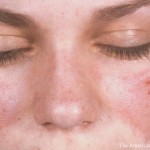Next Steps
Knowing how to optimize safe dosing for hydroxychloroquine at a population level is the goal of a new study. Dr. Esdaile is collaborating with Antonio Aviña-Zubieta, MD, PhD, on a prospective study involving all patients receiving hydroxychloroquine for lupus and RA in the province of British Columbia.
Dr. Petri and other rheumatology and ophthalmology experts in the field will be working to develop specific recommendations for clinicians, but these are not expected soon. Until then, rheumatologists can follow recommended eye monitoring schedules. This should pick up any potential retinopathy early, before symptoms begin and without risk of further progression if hydroxychloroquine is stopped. In so doing, rheumatologists hope to keep using one of their key tools in the treatment of lupus.
Ruth Jessen Hickman, MD, is a graduate of the Indiana University School of Medicine. She is a freelance medical and science writer living in Bloomington, Ind.
References
- Canadian Hydroxychloroquine Study Group. A randomized study of the effect of withdrawing hydroxychloroquine sulfate in systemic lupus erythematosus. N Engl J Med. 1991 Jan 17;324(3):150–154.
- Shippey EA, Wagler VD, Collamer AN. Hydroxychloroquine: An old drug with new relevance. Cleve Clin J Med. 2018 Jun;85(6):459–467.
- Shee JC. Lupus erythematosus treated with chloroquine. Lancet. 1953 Jul 25;265(6778):201–202.
- Page F. Treatment of lupus erythematosus with mepracine. Lancet. 1951 Oct 27;2(6687):755–758.
- Mackenzie AH. An appraisal of chloroquine. Arthritis Rheum. 1970 May–Jun;13(3):280–291.
- Lee SJ, Silverman E, Bargman JM. The role of antimalarial agents in the treatment of SLE and lupus nephritis. Nat Rev Nephrol. 2011 Oct 18;7(12):718–729.
- Rudnicki RD, Gresham GE, Rothfield NF. The efficacy of antimalarials in systemic lupus erythematosus. J Rheumatol. 1975 Sep;2(3):323–330.
- Marmor MF, Kellner U, Lai TYY, et al. Recommendations on screening for chloroquine and hydroxychloroquine retinopathy (2016 revision). Ophthalmology. 2016 Jun;123(6):1386–1394.
- Avina-Zubieta A, Jorge A, DeVera MA, et al. Increased mortality among patients with systemic lupus erythematosus after hydroxychloroquine discontinuation (abstract 299). Lupus Sci Med. 2019;6(Supp 1):A217–A218.
- Petri M, Elkhalifa M, Li J, et al. Hydroxychloroquine blood levels predict hydroxychloroquine retinopathy. Arthritis Rheumatol. 2020 Mar;72(3):448–453.
- Konig M, Li J, Petri M. Hydroxychloroquine blood levels and risk of thrombotic events in systemic lupus erythematosus [abstract]. Arthritis Rheumatol. 2019;71(suppl 10).



